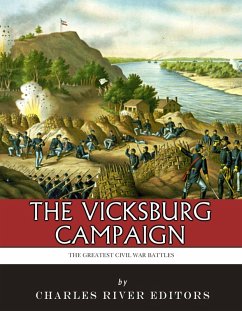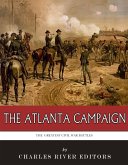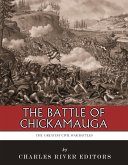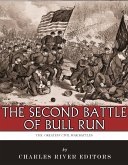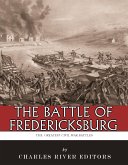The only domino left to fall was the stronghold of Vicksburg, and both sides knew it. The Union Army of the Tennessee, led by Ulysses S. Grant, would spend months trying to encircle the army and eventually force John Pemberton's Confederate army to surrender. Grant eventually succeeded on July 4, 1863, but since it came a day after the climactic finish of the Battle of Gettysburg, Vicksburg was (and still is) frequently overlooked as one of the turning points of the Civil War. In fact, had the Confederate's military leadership listened to Longstreet, who advocated detaching soldiers from Lee's army to head west and help the Confederates deal with Grant or Rosecrans in that theater, the Battle of Gettysburg might never have happened.
While many read about the siege of Vicksburg in the summer of 1863, as well as the desperate straits the Confederate soldiers and Vicksburg residents found themselves in, Grant's initial attempts to advance towards Vicksburg met with several miserable failures, and it took several months just to get to the point where the Union forces could start a siege. First, Grant's supply base at Holly Springs was captured, and then an assault launched by Union General Sherman at Chickasaw Bayou was easily repulsed by Confederate forces, with serious Union casualties resulting. Grant then attempted to have his men build canals north and west of the city to facilitate transportation, which included grueling work and disease in the bayous.
On April 30, 1863, Grant finally launched the successful campaign against Vicksburg, marching down the western side of the Mississippi River while the navy covered his movements. He then crossed the river south of Vicksburg and quickly took Port Gibson on May 1, Grand Gulf on May 3, and Raymond on May 12. Realizing Vicksburg was the objective, the Confederate forces under the command of Pemberton gathered in that vicinity, but instead of going directly for Vicksburg, Grant took the state capital of Jackson instead, effectively isolating Vicksburg. Pemberton's garrison now had broken communication and supply lines. With Grant in command, his forces won a couple of battles outside Vicksburg at Champion Hill and Big Black River on May 16 and 17, forcing Pemberton's men into Vicksburg and completely enveloping it. When two frontal assaults were easily repulsed, Grant and his men settled into a nearly two month long siege that ultimately won the campaign. It was the largest troop surrender during the entire Civil War, and Vicksburg's residents were so embittered that popular folklore maintained Vicksburg didn't celebrate Independence Day for a generation.
In any telling of military history, people can be easily seduced by straightforward explanations that say why one side won and the other was doomed, but in the Civil War, no greater epic of war tests that like the Vicksburg campaign. The Greatest Civil War Battles: The Vicksburg Campaign comprehensively covers the events that led up to the siege, the fighting itself, and the aftermath of the campaign. Accounts of the battle by important participants are also included, along with maps of the battle and pictures of important people, places, and events. You will learn about Vicksburg like you never have before, in no time at all.
Dieser Download kann aus rechtlichen Gründen nur mit Rechnungsadresse in A, B, BG, CY, CZ, D, DK, EW, E, FIN, F, GR, H, IRL, I, LT, L, LR, M, NL, PL, P, R, S, SLO, SK ausgeliefert werden.

